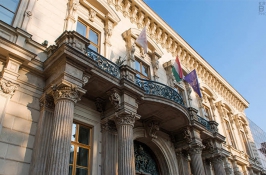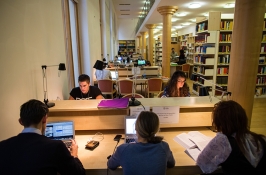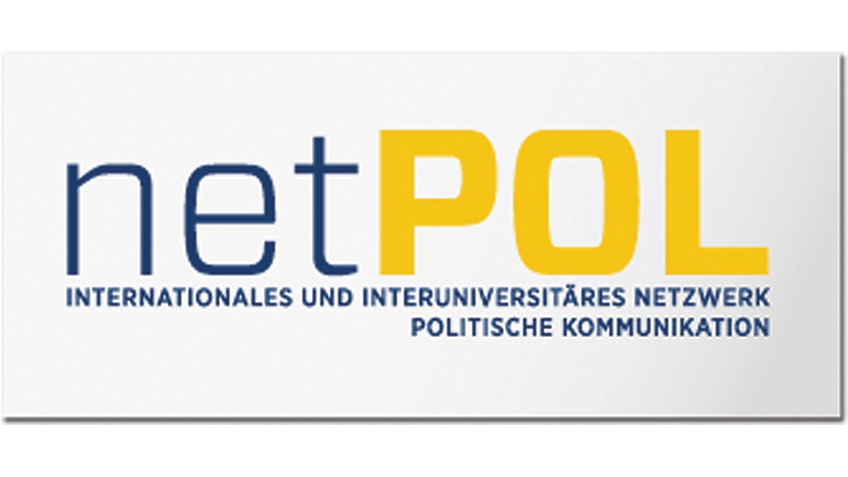
"Divided Societies" im Westbalkan und die Auswirkungen auf den EU-Beitrittsprozess
The project analyses at the role of the EU in solving identity based conflicts of divided societies within EU member states and in prospect member states, i.e. in the region of the Western Balkan area.
The project looks at the role of the EU in solving identity based conflicts of divided societies within EU member states and in prospect member states, i.e. in the region of the Western Balkan area. Divided societies in specific circumstances might create problems in maintaining security, stability and peace, which not only affects the societies in question, but might also spill over to other EU member states. The EU only since the implementation of the Stabilisation and Association Process (SAP) in 1999/2000 established itself as a political actor, which actively supported the post-conflict region and its newly established states of the Western Balkans after the breakup of Socialist Federative Republic of Yugoslavia.
The project’s argument is that the EU, currently engaged with EU accession talks or at least preparatory talks (i.e. High Level Accession Dialogue or the High Level Accession Dialogue) with the state of the Western Balkans, has - more than ever before - to address the issue of divided societies in the region. Although previously, ethnical divisions or identity based conflicts existed within the EU or other European states (e.g. South Tyrol, Northern Ireland, Cyprus, etc…) had these conflicts to be solved between the nation states involved, bi-nationally, rather than the EU taking up a role of a mediator. The project will focus on the previous cases of divided societies within the EU, before looking at the prospect / candidate counties of the Western Balkan, where the EU's approach in relation to the conflictual societal issues (i.e. divided societies) in context of the EU enlargement process has changed.
Contributions:
- "Political Representation of the Serb minority in Croatia: Party competition and dominance". Political Studies Association of Ireland Annual Conference 2016, 7-9 October 2016, Belfast, Ireland
- "Understanding Identity: Why is identity such a powerful factor in conflicts?". CEU-AUB-Conference on "Regional Cooperation and Regional Identity in the Western Balkans: Similarities and Differences", 23 May 2016
- “Divided Societies and European Integration: EU's approach to the Western Balkans”. Workshop "Divided Socities XVIII: ‘The Clash of Civilisations’ Today?”, 19-28 April 2015, Inter-University Centre Dubrovnik, Croatia
- "Western Balkans: Divided Societies and European Integration". Charles University Prague, Czech Political Science Association, VI Congress Prague, 9-11 September 2015, Prague, Czech Republic
- "Divided Societies and European Integration. The cases of Eastern Slavonia (Croatia) and Macedonia". Institute for European Studies-Conference, 8-10 December 2014, Köszeg, Hungary
- "Transformation of minority identities: Serb community in the post-conflict society of Croatia". Political Science Association Ireland (PSAI) – Annual Conference, 17-19 October 2014, Galway, Ireland
- Consociational democracy as a means of building stable democracies in the region of the Western Balkans?, 18th Annual Conference of Central European Political Science Association (CEPSA): „Third Democratic Decade: Challenges of / for Consolidation“, Metopolitan University Prague, 25-26 October 2013, Pilsen, Czech Republic
- The Albanians in Macedonia: The Role of the International Organisations in the Republic of Macedonia (FYROM) in empowering the minority of ethnic Albanians, ECPR Workshop Mainz (Joint Session): Panels “National Minorities between Protection and Empowerment: Contemporary Minority Politics in Europe”, 11-16 March 2013, Mainz, Germany
- "Conflict Resolution in Macedonia: The Role of Third Parties and External Actors", 1st International Balkan Symposium: Yesterday, Today, Tomorrow and the Change, 24 – 26 September 2012, Süleyman Şah University, Istanbul, Turkey
Related Publications
- "Divided by national belonging and joint territory: Northern Ireland’s national identities", in Marianna Kosic / Stuart Holland: Selves and Others. Identities, Societies and Conflicts (Forthcoming 2017)
- "Südtirol zwischen Selbstbestimmung und nationalstaatlichen Interessen", in Melani Barlai, Christina Griessler, Richard Lein (Hrsg.): Südtirol. Vergangenheit-Gegenwart-Zukunft, Nomos Verlagsgesellschaft, Baden-Baden (Germany), 2014.
Scientific field(s): Political Sciences
Research focus(es): Forschungsschwerpunkt 1: Europäische Integrationsprozesse
Research centers:
Zentrum für Demokratieforschung
Status: Befejeződött
Starting date: September 1, 2011



 ETN
QuickLinks
Contact
ETN
QuickLinks
Contact
 Start Your Studies!
Scholarships
Degree Programmes
PH.D. Programme
Admission
Alumni Association
Start Your Studies!
Scholarships
Degree Programmes
PH.D. Programme
Admission
Alumni Association
 Subscribe to our newsletter
Subscribe to our newsletter








